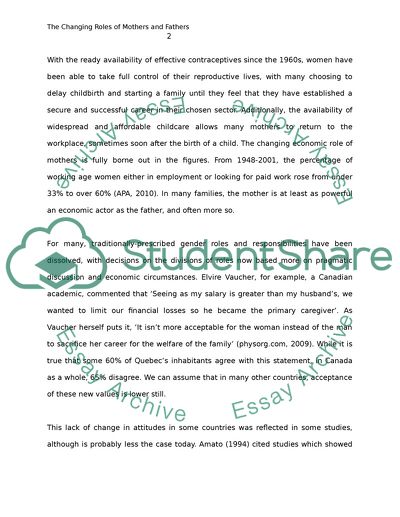Cite this document
(The Changing Roles of Mothers and Fathers Assignment, n.d.)
The Changing Roles of Mothers and Fathers Assignment. Retrieved from https://studentshare.org/sociology/1569064-the-switching-roles-of-moms-and-dads
The Changing Roles of Mothers and Fathers Assignment. Retrieved from https://studentshare.org/sociology/1569064-the-switching-roles-of-moms-and-dads
(The Changing Roles of Mothers and Fathers Assignment)
The Changing Roles of Mothers and Fathers Assignment. https://studentshare.org/sociology/1569064-the-switching-roles-of-moms-and-dads.
The Changing Roles of Mothers and Fathers Assignment. https://studentshare.org/sociology/1569064-the-switching-roles-of-moms-and-dads.
“The Changing Roles of Mothers and Fathers Assignment”, n.d. https://studentshare.org/sociology/1569064-the-switching-roles-of-moms-and-dads.


